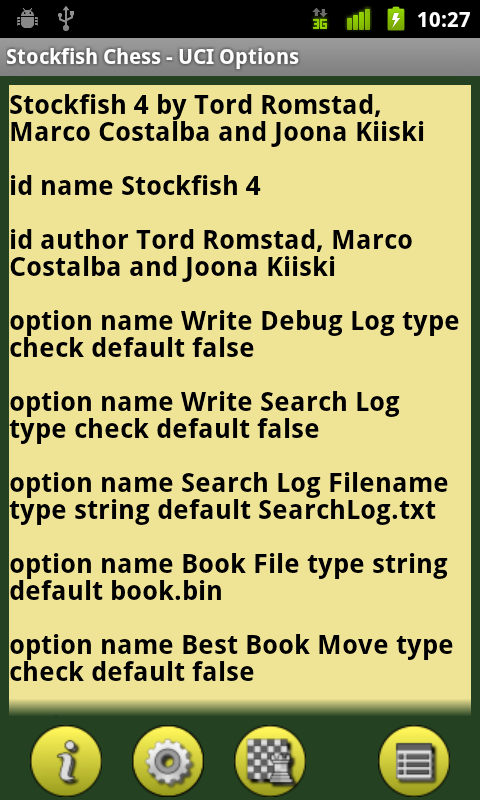

Items of a book should be sorted by their hash. For example, PolyGlot uses 16 bytes for each item, including hash, move, weight, learning values. To save space those extra information typically about 2-8 bytes. Often each position is stored as a hash value (8 bytes) and some extra information such as the number of times occurred, number of games won by white/black / drawn with this position, average/maximum Elo of players playing to this opening position, chess program's success with the position. However, the major number of top books is built and worked with hash values from transpositions.
STOCKFISH CHESS BOOK .ABK SOFTWARE
At the most simple form, they are just a conversion of above text-opening books into binary, in the ready form for software and save text-binary converting steps.

PGN: Opening lines are stored as individual games.EPD: They are the last positions of opening lines.They are stored in typical ways for games and positions:

In practice, those opening books are usually very small with some lines or positions only, they are hard to be used for real game playing but for testing. They are usually missing weight values (to compare between items to know which ones are better) either. If we store openings "continuously" (all possible opening positions) both data size and searching time become too huge and unacceptable for playing. However, the main disadvantage is that they may take too much space as well as time for searching since an item may take from 50 bytes (for FEN strings) to hundreds of bytes (for PGN text). The most advantage by using text form is that they are readable, understandable, and editable by humans and can be viewed, edited with normal text editors. Opening books are typically stored in two main formats: As book moves can be chosen randomly, whereas searches are more or less deterministic. Provide variety: there already exists a lot of literature about different opening lines.It may lose temporarily material for long term advantage. Provide a higher quality of play: Searching even with large depths can't see deep tactics, strategy, compensation.In contrast, opening books can play opening moves almost instantly without searching nor heavy computing and help to save time. Save time: Chess programs could use search from the beginning and look through all possible continuations in detail to find the best next move, but as this is quite time-consuming.


 0 kommentar(er)
0 kommentar(er)
